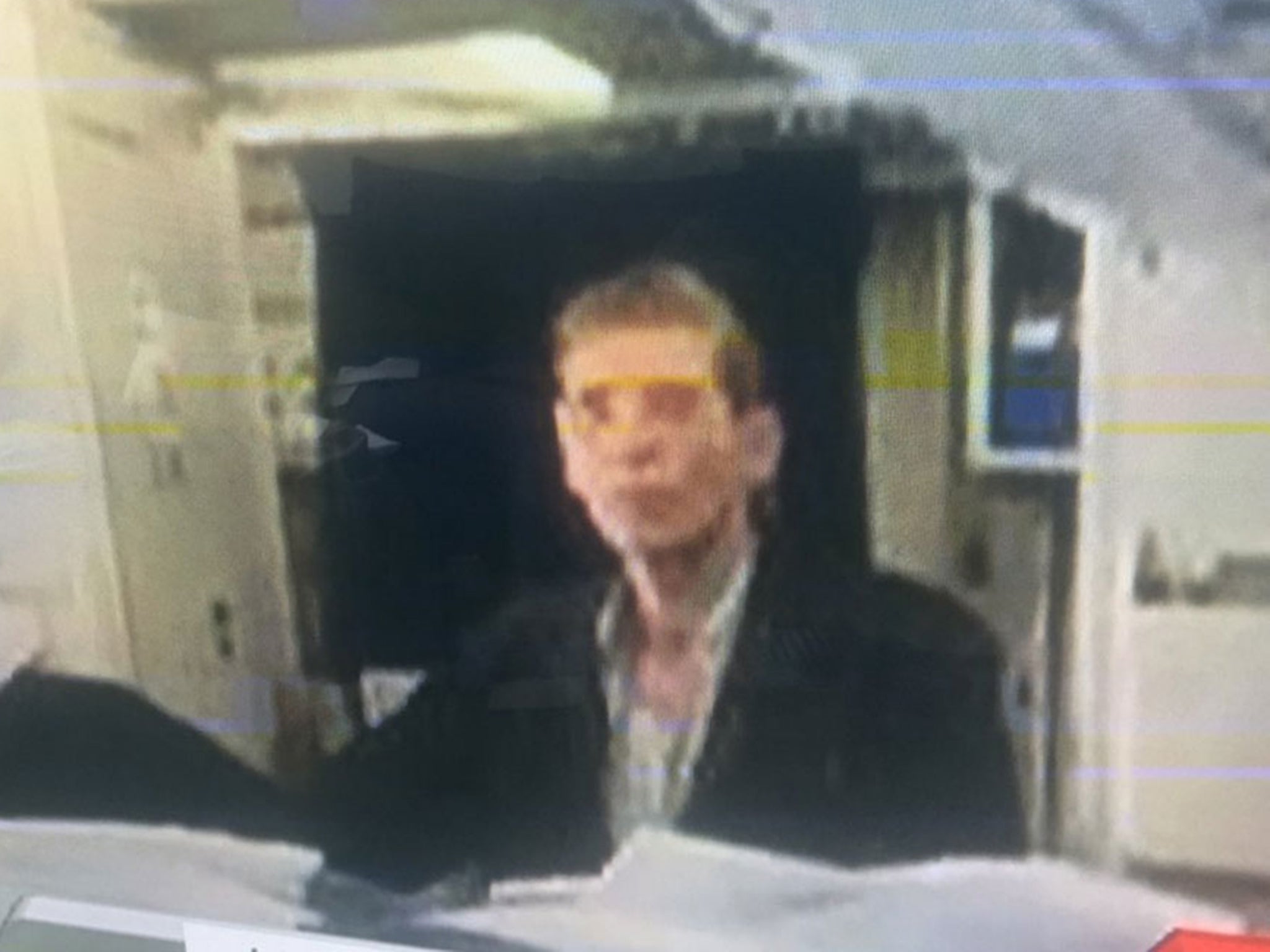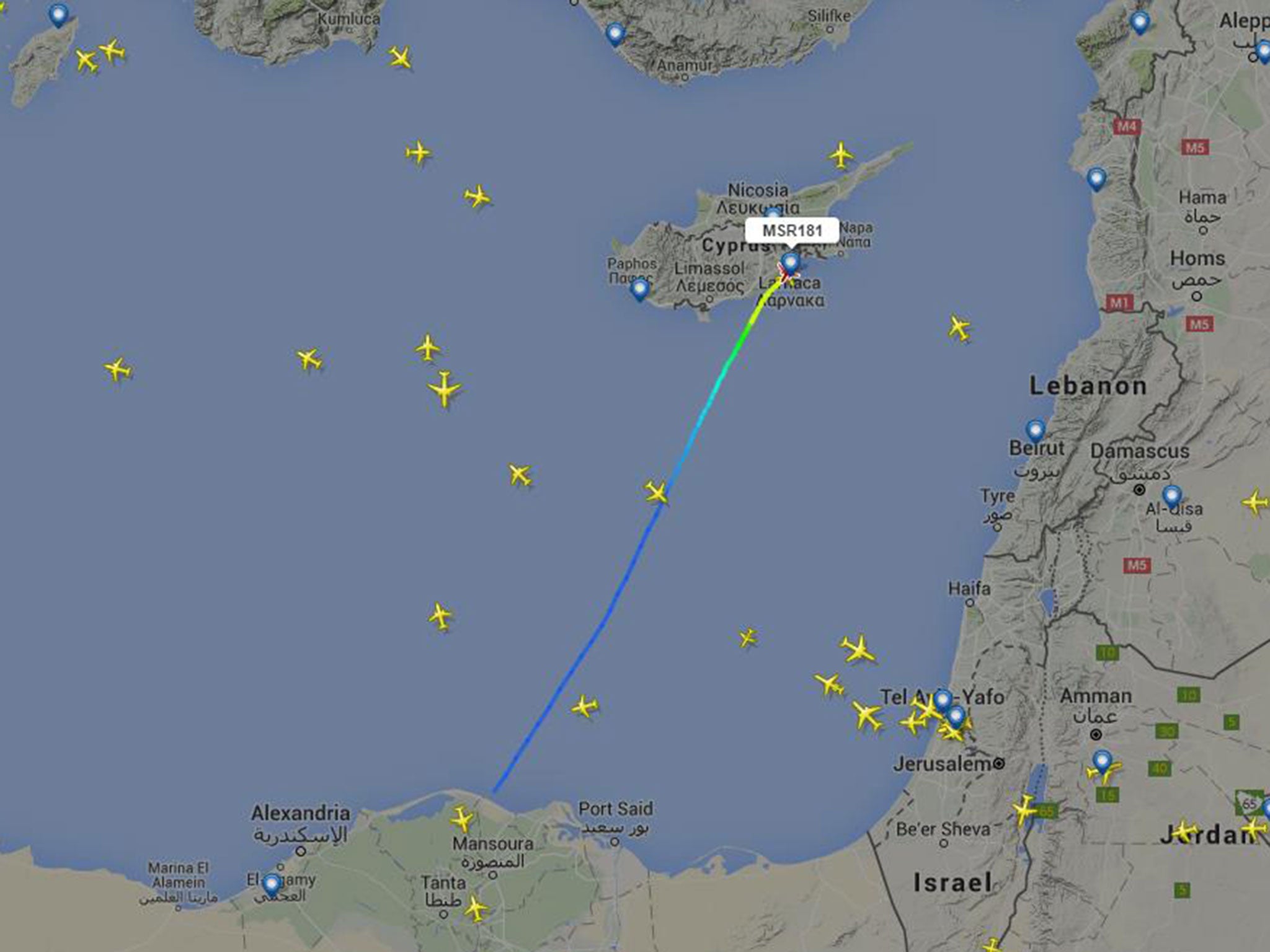Ibrahim Samaha: Man named as EgyptAir suspect says he is not hijacker claiming to have suicide bomb on flight MS181
Mr Samaha said he was on the plane but had been evacuated with other passengers

Your support helps us to tell the story
From reproductive rights to climate change to Big Tech, The Independent is on the ground when the story is developing. Whether it's investigating the financials of Elon Musk's pro-Trump PAC or producing our latest documentary, 'The A Word', which shines a light on the American women fighting for reproductive rights, we know how important it is to parse out the facts from the messaging.
At such a critical moment in US history, we need reporters on the ground. Your donation allows us to keep sending journalists to speak to both sides of the story.
The Independent is trusted by Americans across the entire political spectrum. And unlike many other quality news outlets, we choose not to lock Americans out of our reporting and analysis with paywalls. We believe quality journalism should be available to everyone, paid for by those who can afford it.
Your support makes all the difference.A man named by Egyptian authorities as being responsible for the hijacking of a passenger plane while strapped with explosives has denied being involved.
State television reported that Ibrahim Samaha, an Egyptian national aged 27 or 28 years old, diverted the EgyptAir flight from Alexandria to Cairo on Tuesday morning.
The plane landed in Cyprus’ Larnaca airport shortly before 9am local time and negotiations were underway to release crew members and four foreigners held hostage on board.
Mustafa Bakry, an Egyptian MP, wrote on Twitter that Samaha had been visiting a university in Atlanta in the US, while state media reported that he had dual nationality with the US and taught at Alexandria University.
But a professor named Ibrahim Samaha, from the university's faculty of veterinary medicine, denied he was the hijacker in an interview with BBC Arabic, saying he had been on the plane but was among the evacuated passengers.
“We did not know what was going on. We got on board the plane and we were surprised that the crew took all our passports, which is unusual for a domestic flight," he added.
“After a while we realised the altitude was getting higher, then we knew we were heading to Cyprus. At first the crew told us there was a problem with the plane and only later did we know it was hijacked.”
An Egyptian woman who identified herself as Mr Samaha's wife said her husband was on his way to Cairo so he could fly to the US for a conference.
The woman, who identified herself only as Nahla, told an Egyptian television network that he never been to Cyprus and that a photo supposedly showing the hijacker was not him.
Cyprus' foreign ministry has since identified the hijacker as Seif Eldin Mustafa in a tweet but did not provide further details.
While initial reports claimed the hijacker was demanding “political asylum”, Cyprus broadcasting (CYBC) reported that the man may have personal motives and has an ex-wife on the island.
Witnesses said the suspect threw a letter on to the airport tarmac in Larnaca, written in Arabic, asking that it be delivered to the woman, who is Cypriot.
But Mr Bakry later said reports of personal issues were untrue and that the man had a “political” motive, including demanding the release of prisoners.

Amid growing speculation about the hijacker's motives, the Cypriot President Nicos Anastasiades said the Egypt plane hijacking was not related to “terrorism”.
The Guardian quoted a foreign ministry official in Cairo as saying: “He's not a terrorist, he's an idiot. Terrorists are crazy but they aren't stupid. This guy is.”
EgyptAir said the plane’s pilot was threatened by a man claiming to be wearing a suicide vest and diverted from its destination in the Egyptian capital.
Egypt's civil aviation minister said the hijacker wanted to travel to Istanbul but decided on Cyprus when he was told there was not enough fuel for the journey.
Hossni Hassan, the director of Borg El Arab Airport, said there were 26 foreigners on board, including eight Americans, four Britons, four Dutch, two Belgians, a French national, an Italian, two Greeks and one Syrian, with three other foreigners unidentified.
The nationalities of the four foreign hostages remaining on board were unclear.
Additional reporting by AP
Join our commenting forum
Join thought-provoking conversations, follow other Independent readers and see their replies
Comments